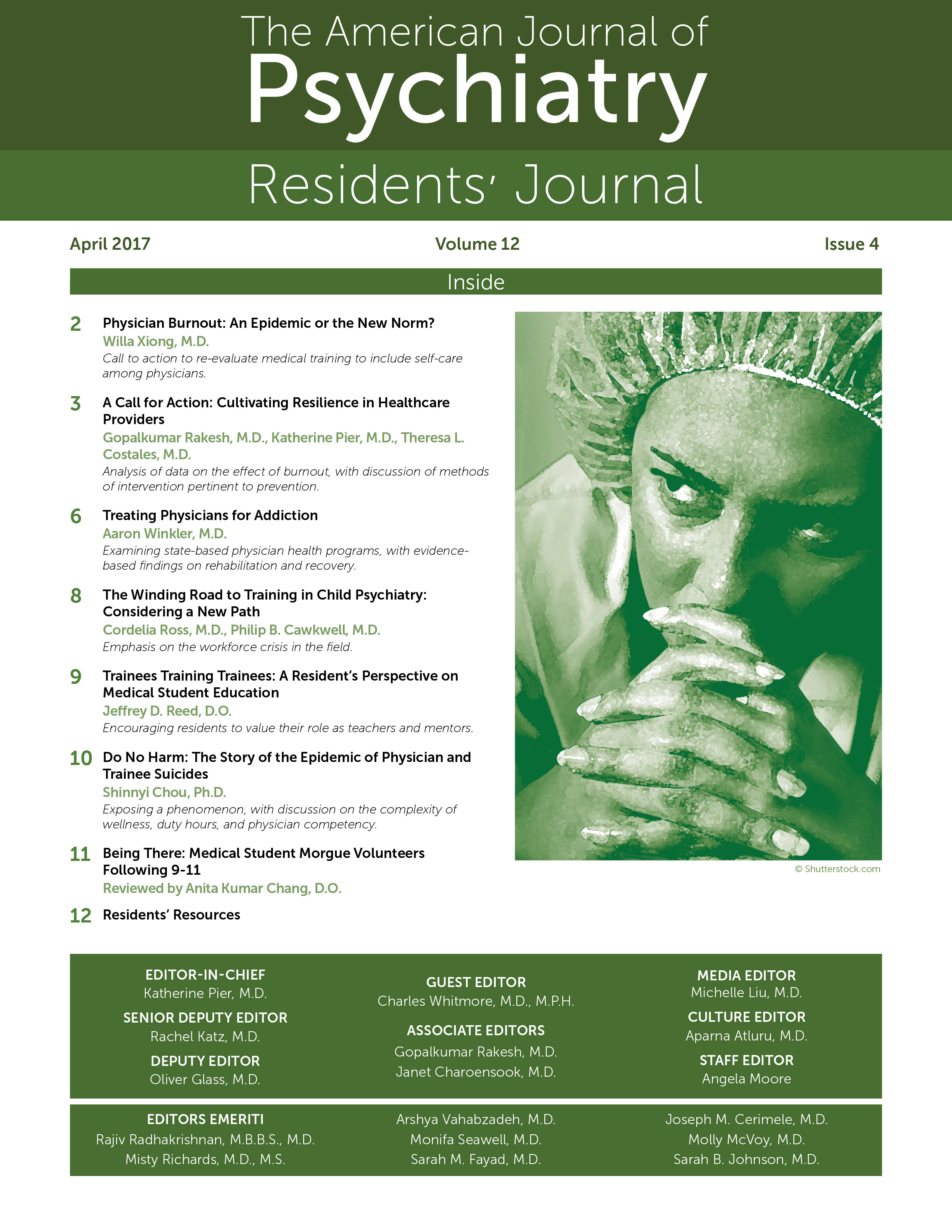The severe mismatch between demand for child and adolescent psychiatry (CAP) providers and the actual number of practicing clinicians has been well documented (
1,
2), with the American Association of Child and Adolescent Psychiatry (AACAP) projecting a shortage of more than 4,000 CAP physicians by 2020 (
3). This impending crisis has been examined from a variety of perspectives, including evaluating interest in the field among medical students and residents, early CAP mentorship, and reimbursement rates (
4–
7). One under-explored factor is a systems-level consideration: whether the current training pathway for child psychiatrists could be optimized.
The conventional pathway a new doctor takes to become a CAP psychiatrist is to complete a 4-year residency in adult psychiatry followed by a 2-year CAP fellowship. Additional options include “fast-tracking” into the CAP fellowship following the third year of the adult psychiatry residency, the triple board residency (a 5-year training program leading to board eligibility in pediatrics, adult psychiatry, and CAP psychiatry), and the 3-year post-pediatric portal program designed for residents who have finished their pediatrics residency training. There are also a small number of programs where medical students can apply for a residency position that guarantees a spot in the programs’ CAP fellowship following completion of their general adult training, as well as programs designed to attract residents interested in CAP research. There is no program that offers a focused and consolidated path tailored specifically for CAP.
It is notable that a psychiatry resident who is interested in CAP often has to wait 2–3 years before beginning any substantial training in child psychiatry. The current Accreditation Council for Graduate Medical Education requirements only mandate 2 months of CAP exposure during the 3–4 years of general psychiatry training. A 2010 survey found that nearly two-thirds of general psychiatry residents seriously consider CAP as a career (
5). And yet only roughly 20%–25% of residents apply for fellowships positions in CAP (
8). The mismatch between initial demand and final result is staggering.
The absence of a direct pathway for CAP hampers the growth of the field and further perpetuates the workforce crisis. A pathway that included intern-level training in pediatrics, a broad overview of adult psychiatry, but a predominant focus on CAP would be ideal. The importance of self-identification as a child psychiatrist early on in training cannot be overstated. Detractors might say that this design would lack sufficient depth in adult psychiatry. We would point to pediatric neurology, which has had a separate pathway from both neurology and pediatrics for decades. It is worth noting that a direct CAP residency is not a novel proposition; AACAP considered it almost 15 years ago, but cautioned that it would require extensive work to get off the ground (
9).
There are at least five different pathways that residents may choose from to become CAP clinicians. Unfortunately, none of them offer direct, focused, and consolidated training. Medicine in the 21st century will be defined by individualization of care. The field of CAP deserves that same individualization: students, residents, and ultimately the children and families we serve will be better for it.
